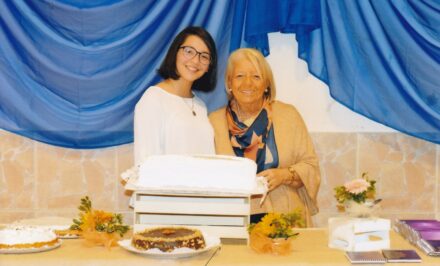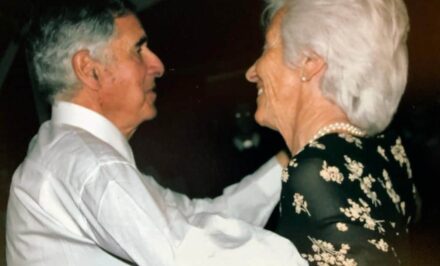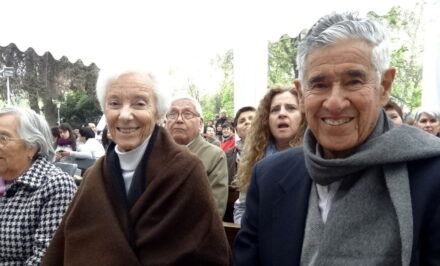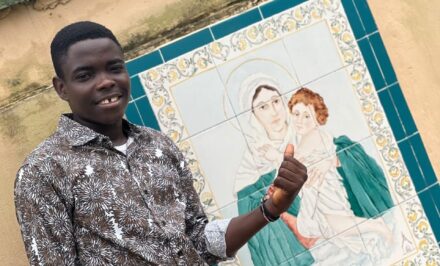 mda. 18 July 2013. People from every generation and social class gather today around two hundred shrines, countless wayside shrines and chapels all over the world, in union with the little shrine in the Schoenstatt Valley. On the coming 18 October 2014 thousands of pilgrims will celebrate a hundred years of the covenant of love in union with one another, and renew this covenant and their readiness to create a covenant culture in every sphere of life – in the economy, politics, in the Church, in education and formation, and in the family, with the youth and with people on the fringes of society: refugees, the homeless, the sick, the dying, street children, pregnant women in crisis … This 18 July our gaze turns to the 18 July 1914 when a newspaper article on the pilgrimage place at Valle di Pompeii awakened in Fr Kentenich the idea to make Schoenstatt a place of pilgrimage and grace. Do our thoughts turn to another 18 July, the 18 July 1863?
mda. 18 July 2013. People from every generation and social class gather today around two hundred shrines, countless wayside shrines and chapels all over the world, in union with the little shrine in the Schoenstatt Valley. On the coming 18 October 2014 thousands of pilgrims will celebrate a hundred years of the covenant of love in union with one another, and renew this covenant and their readiness to create a covenant culture in every sphere of life – in the economy, politics, in the Church, in education and formation, and in the family, with the youth and with people on the fringes of society: refugees, the homeless, the sick, the dying, street children, pregnant women in crisis … This 18 July our gaze turns to the 18 July 1914 when a newspaper article on the pilgrimage place at Valle di Pompeii awakened in Fr Kentenich the idea to make Schoenstatt a place of pilgrimage and grace. Do our thoughts turn to another 18 July, the 18 July 1863?
![]()

Maria Dolores Congiù, who collaborates with schoenstatt.org in Rome, did think of it. On 18 July 150 years ago Katharina Kentenich was born in Gymnich, near Cologne. She was the youngest child of Matthias and Anna Maria Kentenich. Twenty-two years later she gave birth to a child whose father was twice as old as she was, with whom she was not married, and whom she would never marry. A young woman for whom pregnancy – and this child, which she bravely brought into this world – meant financial hardship and public shame. Women like here were despised in the society of her time. So was her child. The baptismal register in the Gymnich parish church records for all time so that mother and child bear the stigma: Father not present.
A mother’s pennies
 For a time Katharina Kentenich and her child lived with her parents in Gymnich. A contemporary of Fr Kentenich from Gymnich, Elisabeth Walraff, related in the 1960s that women with illegitimate children had to stand at the back of the church in the porch, where the baptismal font stood, and were not allowed into the body of the church. Did this also happen to Katharina and Joseph Kentenich?
For a time Katharina Kentenich and her child lived with her parents in Gymnich. A contemporary of Fr Kentenich from Gymnich, Elisabeth Walraff, related in the 1960s that women with illegitimate children had to stand at the back of the church in the porch, where the baptismal font stood, and were not allowed into the body of the church. Did this also happen to Katharina and Joseph Kentenich?
The death of her father and the advancing years of her mother forced Katharina to look for a job and ensure their livelihood. Her child could not go with her, so she too him to an orphanage in Oberhausen – probably the most difficult step for a mother. She wanted to care for her child, for his future, for his schooling, and she knew that she could not do it on her own. At a statue of the Blessed Mother in the orphanage she dedicated her child to Jesus’ Mother, because she would understand better than anyone else how she felt. Joseph Kentenich entered into this dedication and found a Mother for the rest of his life.
Katharina remained in contact with her son. She gave him a crucifix at his First Holy Mass, which he cherished throughout is life. When the high cost for printing and posting his magazine, the MTA, far exceeded what it brought in, Katharina Kentenich repeatedly sent her son what little money she could save. …
Katharina Kentenich spent the end of her life in a home for the elderly in Cologne, where she had had a number of jobs. She died in March 1939. Fr Kentenich travelled to her funeral. A day afterwards, when a young woman told him that she still missed her late father, he replied: I can understand that. Yesterday I buried my own good mother.
150 years Katharina Kentenich
18 July 1863. A hundred-and-fifty years ago the mother of a man was born through whom the covenant of love and Mary’s shrine were to spread all round the world, and whom with prophetic vision created a model of a new Church and society borne by a new and organic way of thinking, loving and living.
A woman who stands for the many women who struggle to accept their unborn child, and who shares with them the privations, financial worries, low-paid work and the lack of understanding of those around her.
A woman whom we can be sure will intercede for the Jubilee 2014, because what is at stake is the mission of her child, for whom she gave her all.
Original: German. Translation: Mary Cole, Manchester, England













